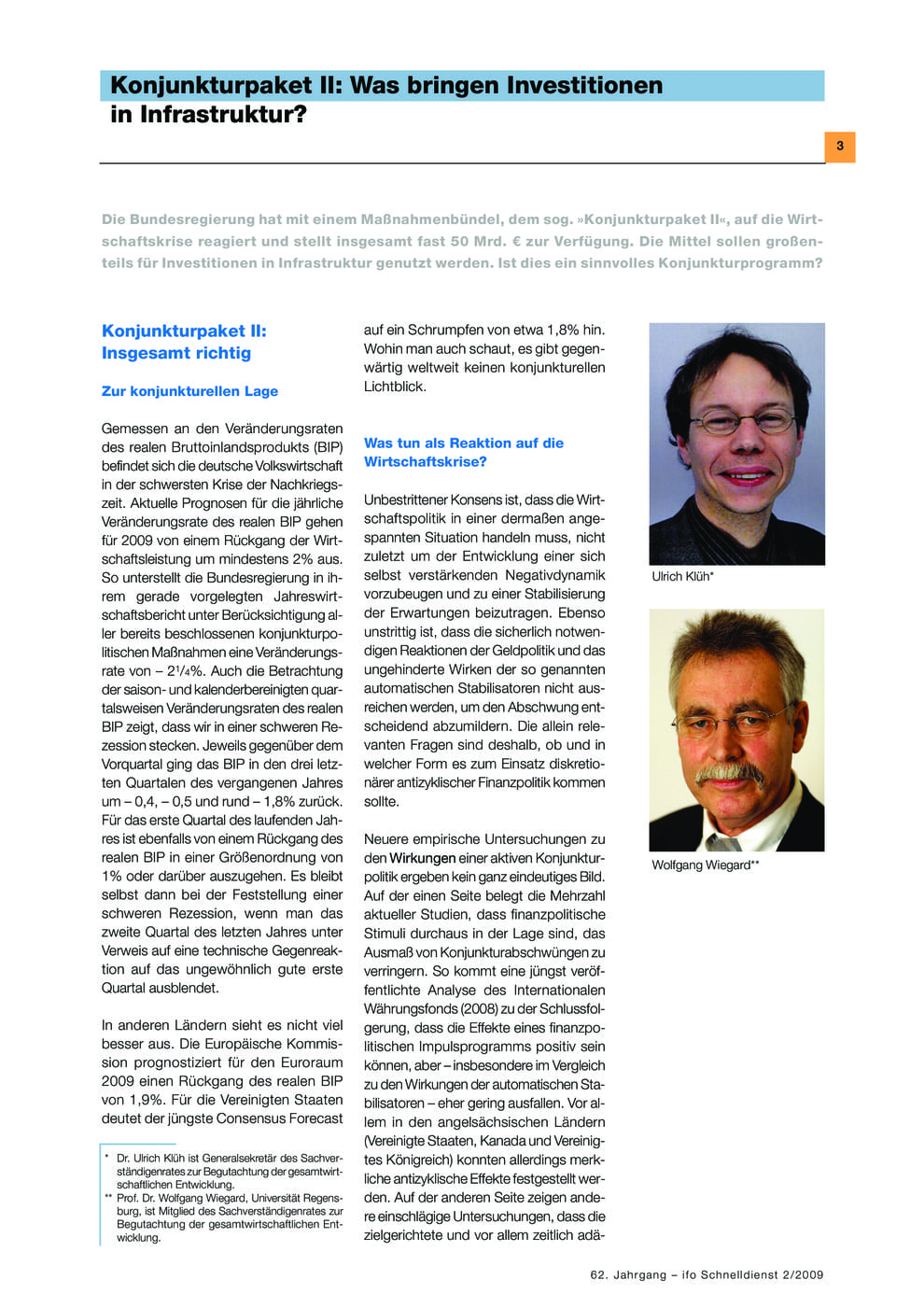How will the second economic stimulus package help?
ifo Institut für Wirtschaftsforschung, München, 2009
ifo Schnelldienst, 2009, 62, Nr. 02, 03-15

The German government has responded to the world economic crisis with the so-called "Economic Stimulus Package II", making almost 50 billion euros available. The funds will be used to a large extent for infrastructure investments. Ulrich Klüh and Wolfgang Wiegard, University of Regensburg, believe that the Federal Government is on the right track with this package. On the whole, the measures are justifiable both in terms of the volume and its central components. Klüh and Wiegard welcome the added funds for infrastructure investments. They criticise that a considerable portion of the measures will not have an impact on demand before 2010. The increase in the budget deficit that the stimulus package will cause must, however, be stopped as soon as the current downturn phase is over, and the increase in the national debt must be reduced in the subsequent years. Also Karl-Hans Hartwig, University of Münster, welcomes the inclusion of transport infrastructure investments in the economic stimulus package, since these measures will lead to additional investments and a short-term increase in GDP, provided that with their financing no displacement of private investments occurs and provided that the construction industry can satisfy the increased demand rapidly. In order to use the money efficiently, funds earmarked for federal highways should be used primarily for maintenance and expansion. Thomas Bauer, Bavarian Construction Industry Association, sees in the economic stimulus package the chance to stabilise production and employment in the German construction industry in this and in the coming year and to compensate to a large extent the expected slowdown in commercial and residential construction. Investment in the infrastructure combines both cyclical and growth effects. Busso Grabow, German Institute for Urban Studies, Berlin, points out that the second stimulus package, in contrast to the first, has a stronger municipal component so that considerably more money will go "where it will be perceptible for people and business through improvements in the everyday and local environments". The desired effects of the economic stimulus package in the investment area will only be effective if the municipalities themselves provide flanking measures. It should thus be possible for municipalities with budget constraints to finance investments almost or completely without funds of their own, relying on help from the federal or state governments.